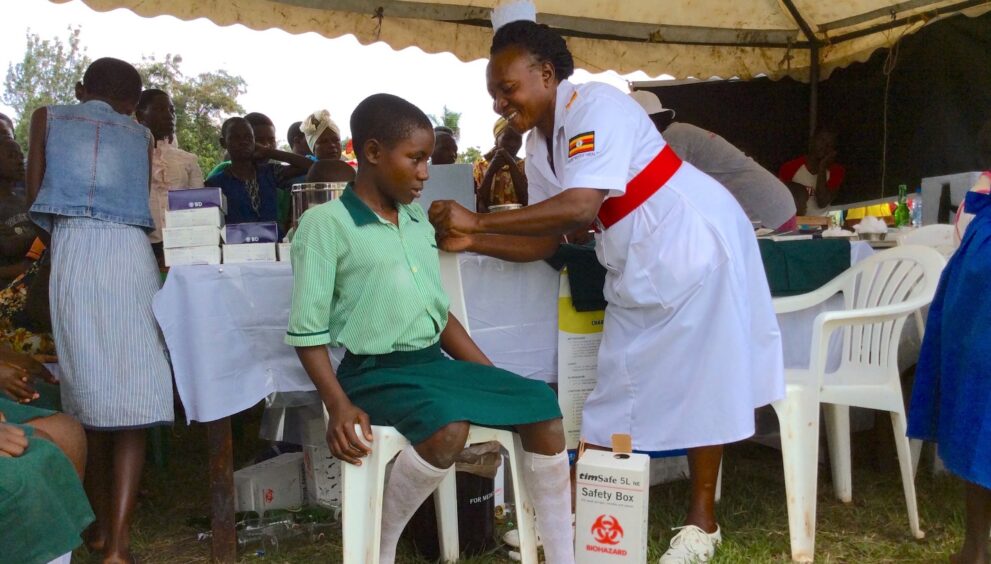Government Enhances Immunization Coverage, Adds Yellow Fever and Malaria Vaccines

Government has updated the childhood immunization schedule in Buliisa District, adding the yellow fever vaccine and expanding doses for measles, Rota, and polio vaccines. Dr. Gabriel Taban, Assistant Health Officer, announced this during the “Big Catch-Up” drive to increase vaccination coverage.
The government has incorporated the yellow fever vaccine into the childhood immunization schedule, as announced by Dr. Gabriel Taban, Assistant Health Officer for Maternal Health in Buliisa District. Dr. Taban shared this update during the launch of the “Big Catch-Up” vaccination initiative, held as part of the Integrated Child Health Days at Buliisa Health Centre IV.
Dr. Taban highlighted additional updates to the immunization schedule. The measles vaccine, previously administered as a single dose at nine months, will now include a second dose at 18 months for enhanced protection. The Rota vaccine, which prevents diarrhoeal diseases, has been extended from two to three doses. Additionally, the polio vaccine, previously administered as a single dose at six weeks, will now include a second dose at fourteen weeks.
He further announced the introduction of the malaria vaccine, scheduled to be available in April next year. New vaccination cards will reflect these changes to ensure children receive this additional protection at health centres.
Dr. Taban emphasized the government’s commitment to safeguarding children’s health and reducing preventable disease mortality. He noted that while immunization previously protected against six diseases, it now covers fourteen, including tuberculosis, polio, measles, rubella, diphtheria, whooping cough, tetanus, Haemophilus influenza, hepatitis B, pneumonia, rotavirus, and yellow fever.
The district faces a substantial number of unvaccinated children, attributed to limited parental awareness and disruptions caused by COVID-19. National data indicate that Buliisa District’s vaccination coverage stands at 87%, slightly below the national average of 90%.
To address these gaps, Dr. Taban encouraged parents to bring unvaccinated children to health centres and village vaccination posts. Village health teams have been conducting door-to-door surveys to identify unvaccinated children across the district, urging parents to bring vaccination cards for cross-referencing.
He assured residents of the vaccines’ safety, noting their approval by the government, the World Health Organization, and UNICEF.
Dr. Taban added that the ongoing month-long vaccination drive will immunize all children under five against fourteen diseases, with additional vaccination of girls aged 10 to 14 against HPV to prevent cervical cancer and women aged 15 to 49 against tetanus.
Buliisa Resident District Commissioner Longino Bahebwa Byagagaire urged mothers to take advantage of this free vaccination opportunity. He underscored the government’s success in eliminating diseases that once caused widespread health issues, noting that measles outbreaks were common before the introduction of mass vaccinations in 1986.
Chief Administrative Officer Ismail Onzu commended the government for adding the yellow fever vaccine to the immunization schedule, recognizing its importance for Ugandans traveling abroad. He encouraged residents to seek medical care from government health facilities for accurate diagnosis and treatment.







